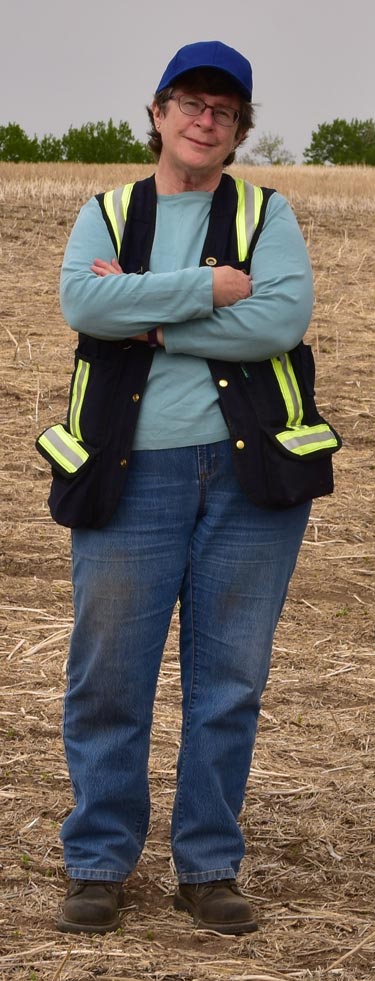Home / Health, Wellness and Safety / News / Achievement and Success through Continuing Education
Achievement and Success through Continuing Education
Interview with Heather Pate, 2019 Grad in our Environmental and Occupational Health Program
 What is your current position?
What is your current position?
Lead Investigator - Alberta OHS Officer and Peace Officer II since May 2014
Can you give me a brief overview of what it is you do in your work?
When a reportable incident occurs at an Alberta worksite, I am called out to attend the worksite with one or more colleagues to investigate the circumstances, stop work and/or stop use of any equipment that may or does present a hazard to workers, interview witnesses and others, evaluate if there are any non-compliances with the AB OHS Act, Regulation and Code, write Orders to ensure compliance with legislation and write Demands for further information, evaluate the steps the regulated party (e.g. employer, prime contractor, contractor, workers, supplier and others) took to remedy the non-compliances and determine if compliance has been achieved.
Once the worksite is in compliance, then evaluate if further investigation is needed and write additional Demands for more information. Should AB Justice decide that the case should proceed to court, then prepare the full disclosure for Crown and defense lawyers and prepare to be a witness should the case go to trial. All of this requires an in depth knowledge of OHS principles, investigative procedures and techniques, inter-personal communication, written communication and a strong interest in ensuring worksites are safe for workers and employers.
How did you get started in Environmental and Occupational Health?
I was a Coroner in BC for over 10 years and found that every workplace fatality I investigated was preventable. I wanted to take what I knew and experienced in that role to a more pro-active approach. I still investigate fatalities but many more incidents have a less drastic outcome and I have a more preventative role.
Why were you seeking EOH education?
My experience and knowledge from being a Coroner needed to be upgraded to more specific EOHS related.
What attracted you to the UVic EOH certificate program?
UVic offered a distance education option that fit with having to work full time at the same time as I was studying. I'd been a student at UVic way back and had confidence that the EOH program would provide a high quality education. I had completed 5 of the 8 EOH courses when I was hired by AB OHS. They also recognized that the EOH program was an asset and supported me in finishing the remaining 3 courses.
What do you love the most about working in this industry?
I can actually make a difference in getting workers home safe every day, keep employers in tune with safety, and prevent both human loss and property loss. Every day is different and every incident is different. There is a constant challenge to learn about worksites and industries as my role covers any and all worksites in Alberta. And as I am in a regulatory role, when needed and appropriate, I can be part of applying consequences to unsafe worksites and employers.
What skill set should every EOH professional have in their portfolio?
Most important: "None of us is as smart as all of us." Quote by Kenneth H. Blanchard
My version is: Collaborate and consult with others - OHS is not a solitary pursuit.
What's next for you in your work?
Changes to AB OHS legislation with a change in government and how to apply the changes to the ongoing work. Continual improvement in investigative technique.
- Posted June 22, 2022
RELATED TOPICS: Health, Safety and Emergency Management
More student stories
- Public Relations student wins a podcast award for On Notice
- Business graduate makes a positive career pivot
- Public Relations student is awarded the 2023 Denis Racine Bursary
- Navigating a career transformation through public relations
- Broadening your perspective and knowledge of palliative care
Visit Registration
2nd Floor | Continuing Studies Building University of Victoria Campus 3800 Finnerty Road | Victoria BC | CanadaTel 250-472-4747 | Email uvcsreg@uvic.ca
2026 © Continuing Studies at UVic
Legal Notices |
Sitemap

